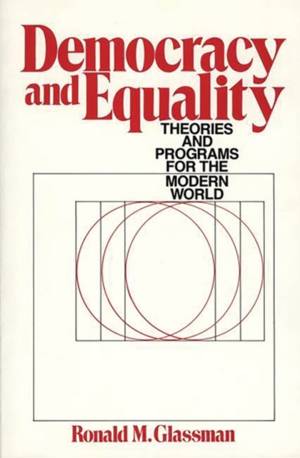
- Retrait gratuit dans votre magasin Club
- 7.000.000 titres dans notre catalogue
- Payer en toute sécurité
- Toujours un magasin près de chez vous
- Retrait gratuit dans votre magasin Club
- 7.000.0000 titres dans notre catalogue
- Payer en toute sécurité
- Toujours un magasin près de chez vous
Description
While the romantic notions of social and economic equality once espoused by the socialist movement have been overshadowed by the realities of government power, bureaucractic inefficiency, and class divisions, Glassman claims that the quest for equality and social justice can and must be pursued within legal-democratic societies. He contends that the quest for equality within the democratic framework is politically, economically, morally, and socially beneficial. Using the theoretical principles of Aristotle, Rawls, and Keynes, Glassman demonstrates that the development of practical programs can allow an expansion of the middle class and a greater degree of equality within capitalist democratic societies.
Along with these three non-socialist theories for equality, the book analyzes some contemporary democratic-socialist programs that have been developed for the same objective. All the proposed programs throughout this book emphatically establish democracy as an essential factor and then work toward achieving greater equality within the parameters set by the legal-democratic state. Democracy and Equality will prove invaluable to anyone interested in social theory, the principles of equality, and political and economic developement of the industrial state.Spécifications
Parties prenantes
- Auteur(s) :
- Editeur:
Contenu
- Nombre de pages :
- 234
- Langue:
- Anglais
- Collection :
Caractéristiques
- EAN:
- 9780275931001
- Date de parution :
- 04-04-89
- Format:
- Livre relié
- Format numérique:
- Genaaid
- Dimensions :
- 156 mm x 234 mm
- Poids :
- 521 g

Les avis
Nous publions uniquement les avis qui respectent les conditions requises. Consultez nos conditions pour les avis.






